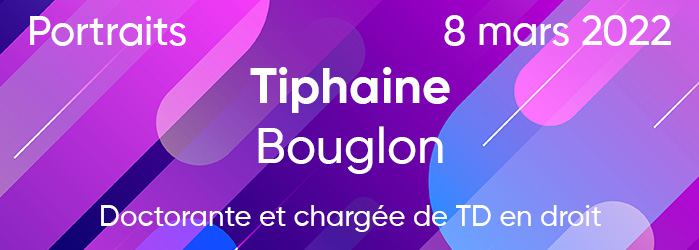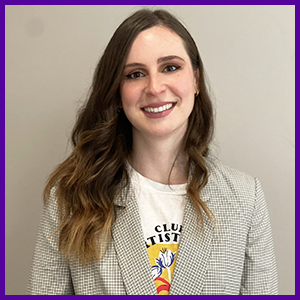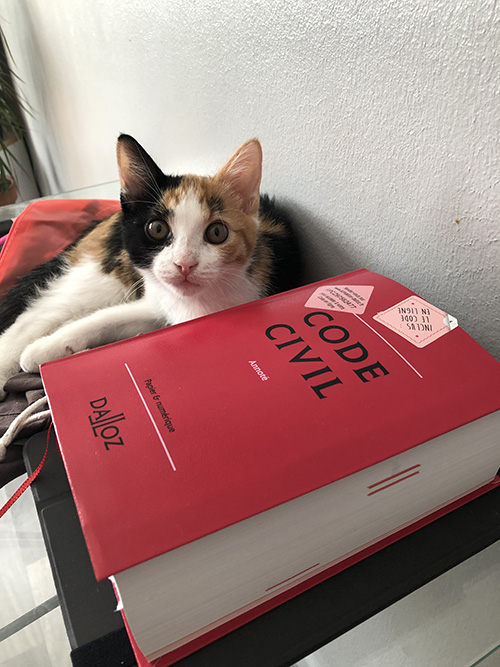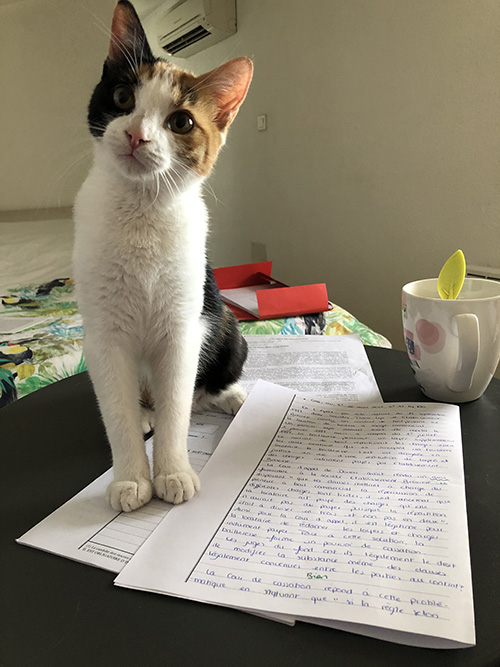[Portrait] Tiphaine Bouglon, PhD student and lecturer in Law


What is your research about?
My thesis is about the concept of the open Internet, a way of thinking about access to online content that is network, platform and device proof.
In a world where most of our exchanges take place online, our communications are subject to regulation by states but are also governed by rules determined by a vast array of private actors. While it is crucial to restrict the circulation of certain content online (illegal content), we note that these actors arrogate powers to themselves that should be questioned and framed. In my thesis, I observe and question all these power relations between States, private actors and Internet users. I study the obstacles that stand between what Internet users can access online and what they want to access. In short, I question what is expected of the Internet and the digital tools we use. Is total openness, a totally uninhibited use desirable?
What are your current scientific activities?
A few months after the beginning of my thesis, I wrote an article published in the journal Lamy Droit de l'Immatériel. It is an adaptation of my Master 2 thesis, in which I am interested in the links between an obligation to decrypt a means of cryptology and the right not to contribute to one's own incrimination.
In addition, from time to time I am asked by journalists to answer questions on current affairs concerning digital law, which has led to several contributions to press articles. For example :
- In Usbek & Rica (December 2021), "Metaverse: "For an assault to be classified as rape, there must be materiality". (Emilie Echaroux)
- In Libération (26 August 2021), "Enduire les GAFA d'erreur" (Nicolas Celnik)
Since then, I have made progress in my research and am currently preparing proposals for contributions to conferences on online harassment.
Why did you choose to work in academic research?
When I started law school, I had a naive, if noble, image of the lawyer defending lost causes, of the investigating judge pushing the limits of the criminal investigation. Over the years, I have come to understand that while much of legal practice is about the application of law, the law has to be developed beforehand. Law is not an exact science. It tries to provide concrete solutions to the problems raised by human activity. Every day, however, human activity raises new issues for the law. To shape positive law, research must first explore the continent of prospective law. What could be more exciting, then, than to think about the rules of tomorrow? It is in this noble, thorough, almost absolute work that I identify my vocation.
What advice would you give to students who want to do research?
Quickly identify the topics that interest you and, in my field, the legal gaps or difficulties that may exist in certain areas of the law.
I think it is also important to look beyond your subject and put it into a global societal context from the start: how will my subject advance humanity? It's not about getting a big head - on the contrary, it helps to keep in mind that you're not going to revolutionise the subject (although that's not out of the question either!) but to be part of a line of researchers and small advances that will, in the end, lead to a collective and ambitious result.
When Albert Einstein hypothesised the existence of gravitational waves in 1916, he did not have the means to prove it. However, the work he did at his level (not the least of which, it must be admitted) enabled the researchers of the following generations to continue the work, and finally, exactly one century later, to demonstrate the proof of their existence.
What object or image from your business best illustrates you?
My cat gets into a lot of mischief and is particularly potty when I'm working, but she's a real help every day!


The portraits
Updated on 22 December 2022